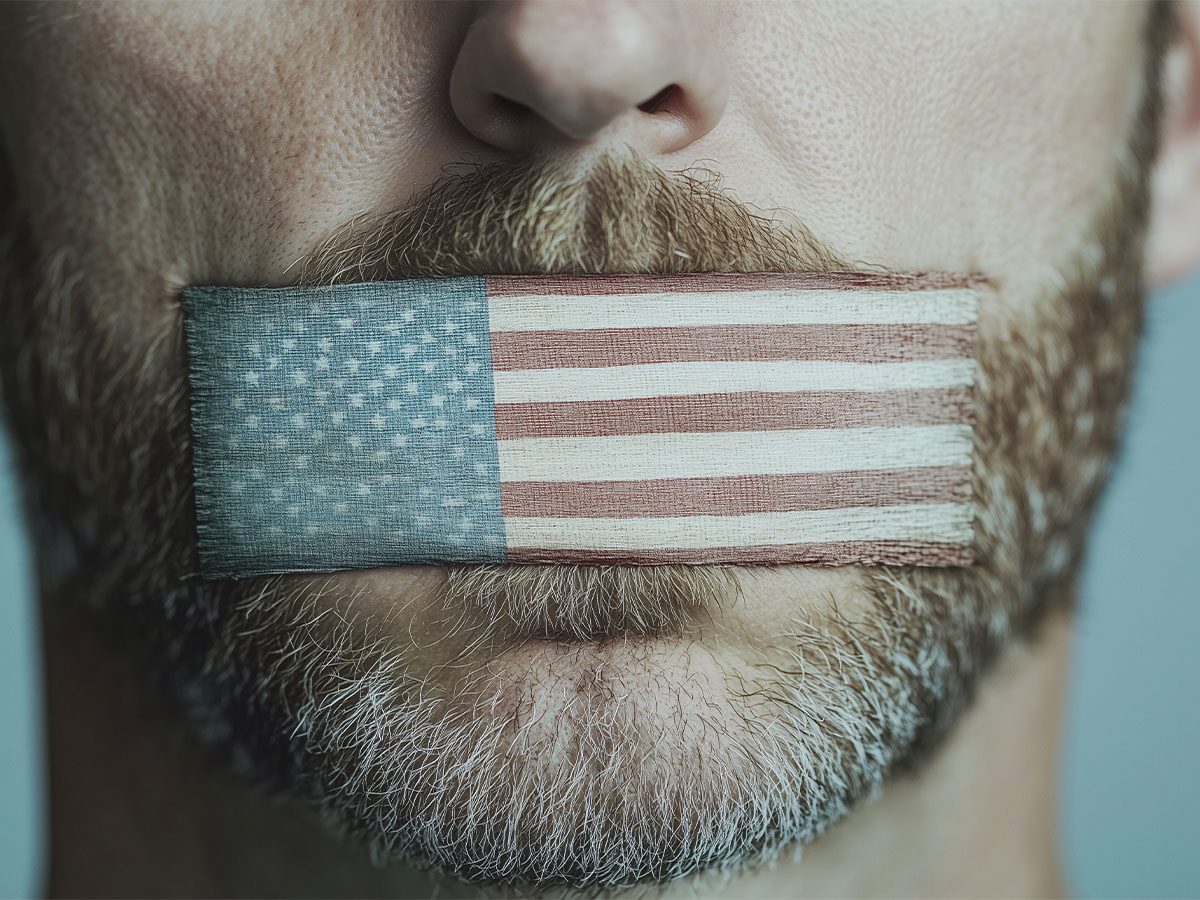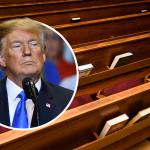
A recent report by the Freedom Forum has revealed that almost half of Americans view former President Donald Trump as a potential threat to the First Amendment, raising concerns about the state of free speech in the country. The report, titled “Where America Stands,” is based on a survey conducted between July 29 and August 4, 2024, among 820 Americans aged 16 and older.
According to the poll, 49 percent of respondents believe that Trump represents either a “strong threat” or “somewhat of a threat” to the First Amendment. This concern isn’t confined to Trump alone; 37 percent of respondents also viewed Vice President Kamala Harris as a threat to those rights. On the flip side, only 36 percent of respondents felt that Trump would protect the First Amendment if reelected, and 42 percent believed the same about Harris should she run for and win the presidency.
The data points to a deep division within the American populace, as opinions about who best upholds free speech rights seem closely tied to political affiliation. The concerns regarding Trump’s stance on the First Amendment likely stem from his past rhetoric and controversial actions during and after his presidency, particularly his comments following the 2020 election.
Beyond individual political figures, the report reveals a broader shift in attitudes toward the First Amendment itself. While 93 percent of Americans still consider the First Amendment vital, support for the constitutional right has declined in recent years. Four years ago, 63 percent of respondents said they would support ratifying the First Amendment today. That number has now dropped to 58 percent, a worrying sign for advocates of free speech.
One of the most concerning findings in the report is that 42 percent of Americans believe the First Amendment should not protect “hate speech.” This is a particularly divisive issue, as it pits the value of protecting free speech against concerns about the harm that certain types of speech can cause. The poll also highlighted generational differences, with millennials more likely than baby boomers to feel that the First Amendment “goes too far in the rights it guarantees.” While 17 percent of millennials held this view, only 10 percent of baby boomers agreed.
The generational divide suggests that younger Americans are more open to curtailing certain speech rights, especially speech they view as harmful. This sentiment is echoed in the report’s finding that more than one-third of Americans prioritize preventing hate speech over preserving free speech.
Trump’s past actions and statements seem to have contributed to the belief that he is a threat to First Amendment rights. In 2022, Trump sparked controversy when he suggested suspending the Constitution to contest the results of the 2020 election, which he claimed was fraudulent. “A Massive Fraud of this type and magnitude allows for the termination of all rules, regulations, and articles, even those found in the Constitution,” Trump posted on his social media platform, Truth Social. Such rhetoric has fueled concerns that Trump’s approach to governance might undermine foundational democratic principles, including the First Amendment.
Adding to the controversy, Trump has made lighthearted but alarming comments about his potential future presidency. In an interview with Fox News’ Sean Hannity, Trump jokingly referred to himself as a “dictator” when discussing his plans to secure the Southern border and expand oil drilling. Although he quickly qualified his statement by saying, “After that, I’m not a dictator,” the remark further inflamed fears about his respect for constitutional boundaries.
However, the concerns surrounding the First Amendment are not limited to Trump’s actions or potential future presidency. Americans across the political spectrum express increasing unease about their ability to speak freely. The report notes that many Americans feel they cannot discuss controversial topics openly, fearing job loss, violence, or strained relationships with friends and family. This climate of self-censorship is concerning, as it reflects broader societal challenges to the robust exchange of ideas that the First Amendment is meant to protect.
Last month, a survey by the Foundation for Individual Rights and Expression found that 53 percent of Americans believe the First Amendment “goes too far in the rights it guarantees.” This suggests a growing number of people are willing to limit free speech, particularly when it comes to speech that is considered hateful or harmful.
The Freedom Forum’s report highlights significant concerns about the future of free speech in America. With nearly half of Americans viewing one of the country’s most prominent political figures as a threat to the First Amendment, and with declining support for the Amendment itself, the U.S. is at a critical juncture in its understanding and defense of free speech rights.
As the country moves forward, the challenge will be to find a balance between protecting free speech and addressing legitimate concerns about the harm that certain forms of speech can cause. Whether that balance can be struck in a politically polarized environment remains to be seen. The results of this survey indicate that the debate over the First Amendment is far from settled, and it will likely remain a contentious issue for years to come.


